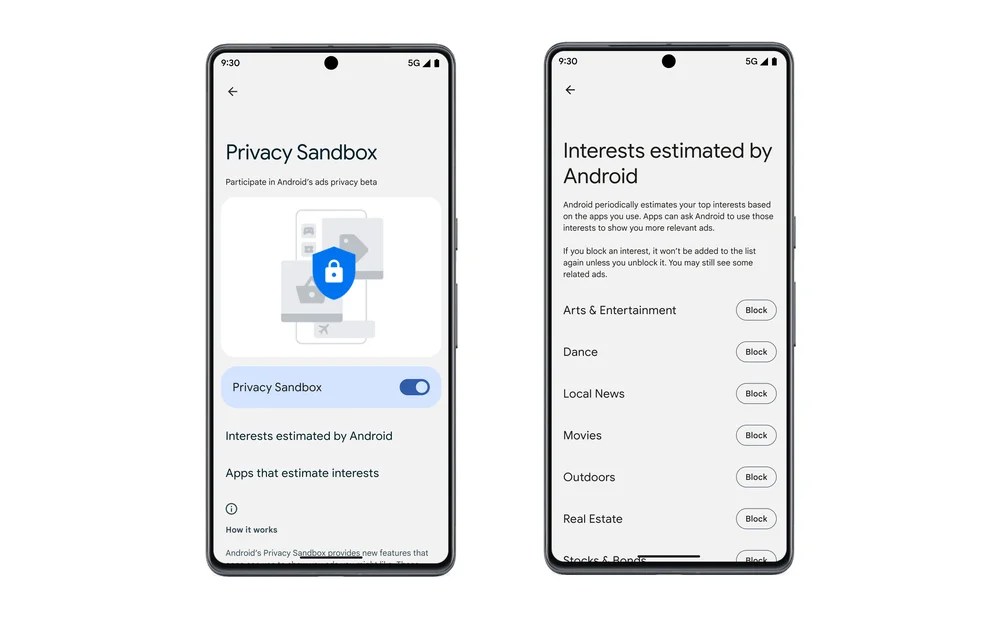Privacy Sandbox, Android’s privacy-focused ad technology, is rolling out in beta
Android seems ready to take on iOS in another area: advertising privacy.
In a blog post, Google announced that the Privacy Sandbox, a technology it revealed last year, would finally be going into beta. When the company originally announced the Privacy Sandbox, it said that its aim was to give users and advertisers the tools to “limit sharing of user data with third parties and operate without cross-app identifiers, including advertising ID.”
The company says that the beta will be rolling out “gradually, starting with a small percentage of Android 13 devices, and will expand over time.”
Over the past year, we’ve worked closely with the industry to gather feedback and begin testing these new technologies. Today, we’re entering the next phase of this initiative, rolling out the first Beta for the Privacy Sandbox on Android to eligible devices. With the Beta, users and developers will be able to experience and evaluate these new solutions in the real world.
The technology sounds quite similar to how Apple approaches advertising privacy on its devices. Google says that with Privacy Sandbox turned on, apps will no longer be able to use “identifiers that can track your activity across apps and websites.”
The Privacy Sandbox Beta provides new APIs that are designed with privacy at the core, and don’t use identifiers that can track your activity across apps and websites. Apps that choose to participate in the Beta can use these APIs to show you relevant ads and measure their effectiveness.
If you are invited to try out the beta, you’ll be able to manage the apps and interests that Android uses to serve ads. As an example, Google says that it will figure out that you may be interested in Movies or Outdoors based on the apps installed on your phone. You can, however, change that if it is incorrect.
You’ll be able to control your Beta participation by going to the Privacy Sandbox section of Settings. From this screen you’ll be able to see and manage the interests that apps can use to show you relevant ads. For example, you could see that Android has estimated that you’re interested in topics like Movies or Outdoors, and you can block any topics if they don’t fit your interests. And if you change your mind about participating in the Beta, you can turn it off or back on in Settings.
The beta comes about a week after the company announced Bard, its competitor to ChatGPT. That announcement hasn’t garnered much praise yet, however, due to it not yet shipping like Microsoft’s new version of Bing and Edge and also due to the technology getting a factual error in its first demo.
For all the latest Technology News Click Here
For the latest news and updates, follow us on Google News.

